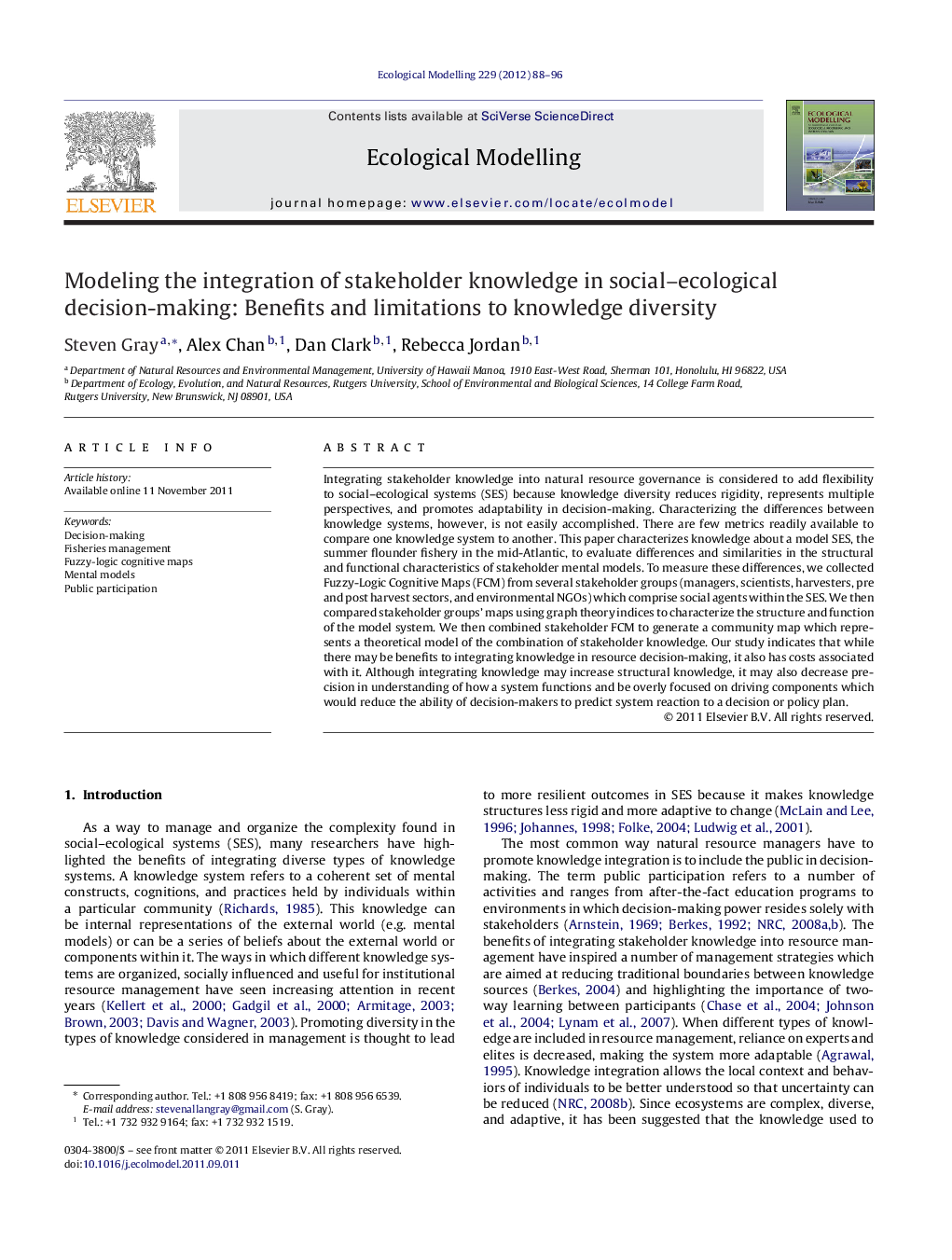| Article ID | Journal | Published Year | Pages | File Type |
|---|---|---|---|---|
| 4376550 | Ecological Modelling | 2012 | 9 Pages |
Integrating stakeholder knowledge into natural resource governance is considered to add flexibility to social–ecological systems (SES) because knowledge diversity reduces rigidity, represents multiple perspectives, and promotes adaptability in decision-making. Characterizing the differences between knowledge systems, however, is not easily accomplished. There are few metrics readily available to compare one knowledge system to another. This paper characterizes knowledge about a model SES, the summer flounder fishery in the mid-Atlantic, to evaluate differences and similarities in the structural and functional characteristics of stakeholder mental models. To measure these differences, we collected Fuzzy-Logic Cognitive Maps (FCM) from several stakeholder groups (managers, scientists, harvesters, pre and post harvest sectors, and environmental NGOs) which comprise social agents within the SES. We then compared stakeholder groups’ maps using graph theory indices to characterize the structure and function of the model system. We then combined stakeholder FCM to generate a community map which represents a theoretical model of the combination of stakeholder knowledge. Our study indicates that while there may be benefits to integrating knowledge in resource decision-making, it also has costs associated with it. Although integrating knowledge may increase structural knowledge, it may also decrease precision in understanding of how a system functions and be overly focused on driving components which would reduce the ability of decision-makers to predict system reaction to a decision or policy plan.
► We collected representations of stakeholder's mental models of a social–ecological system. ► We combined these representations to illustrate knowledge integration in decision-making. ► We compare how different stakeholder groups view the same social–ecological system. ► Knowledge integration increases structural knowledge but may decrease knowledge of system dynamics.
